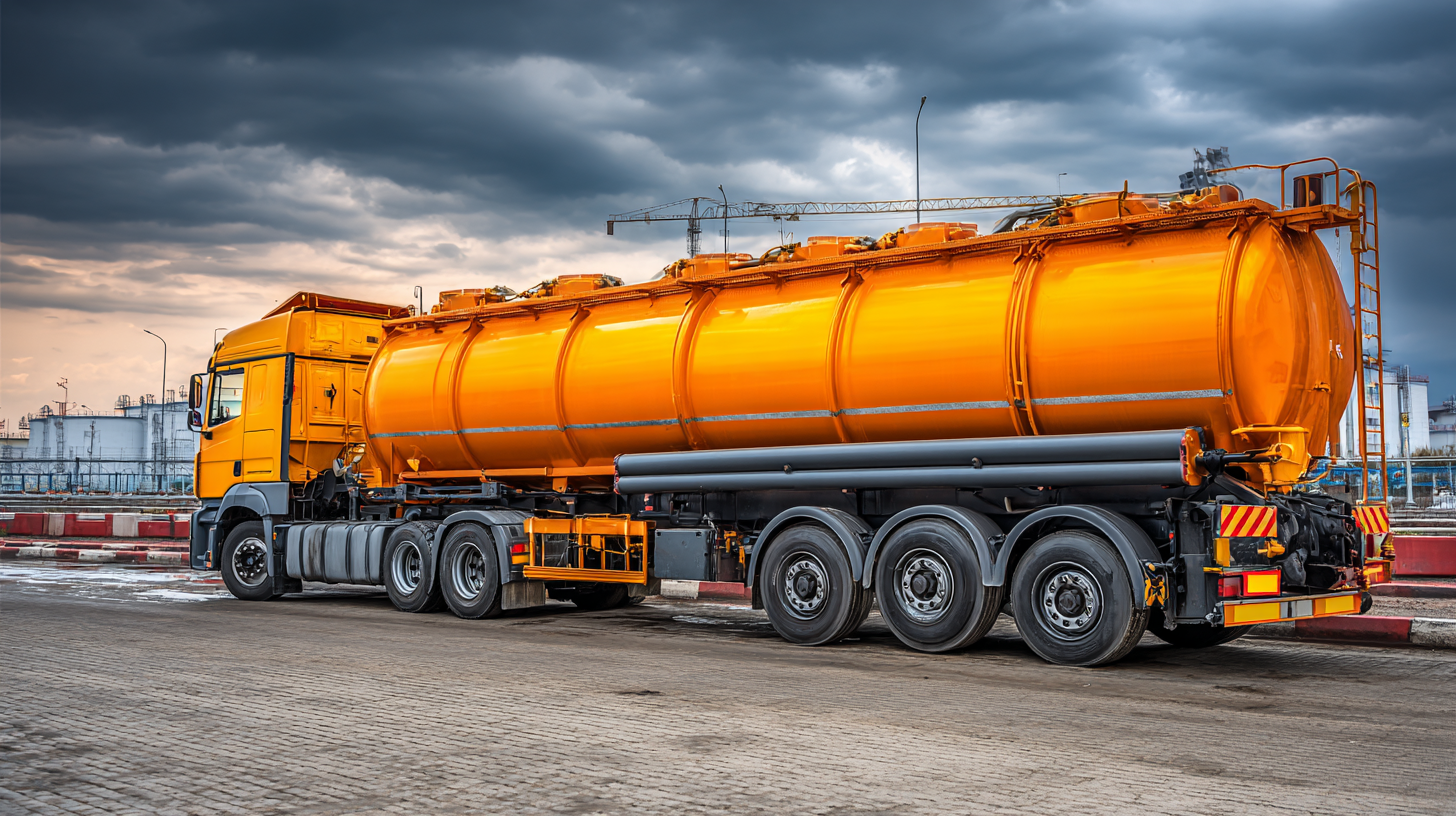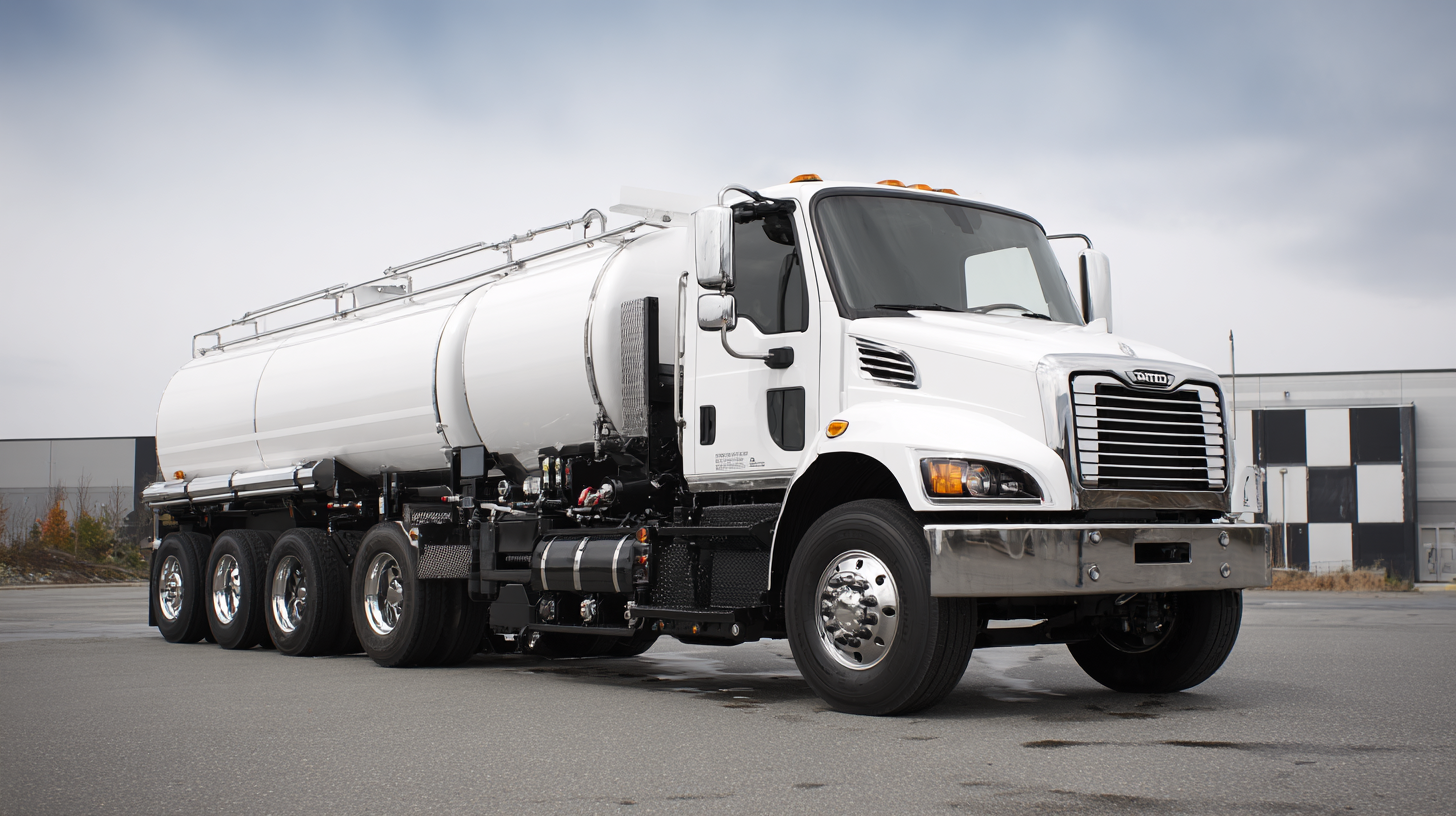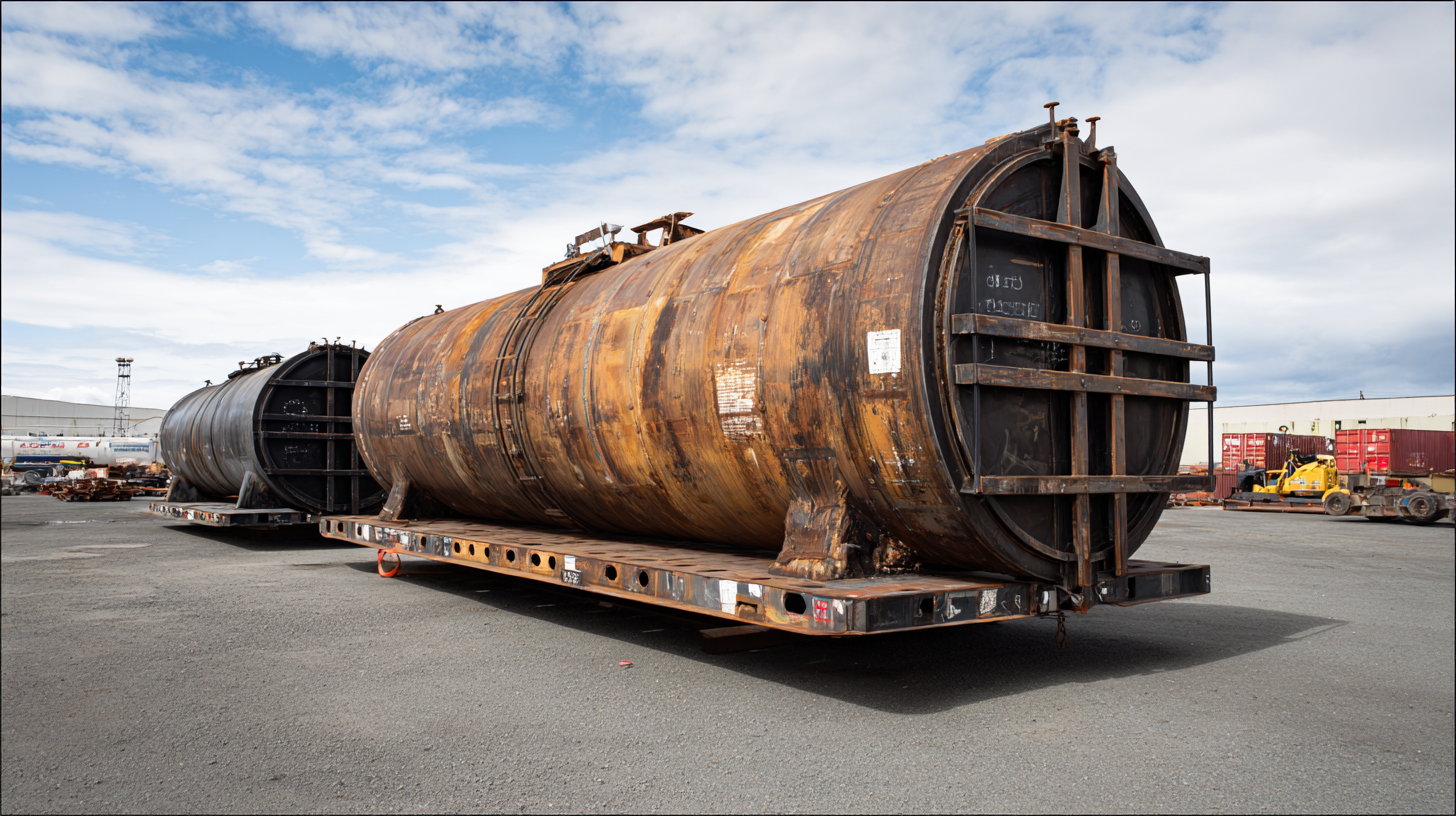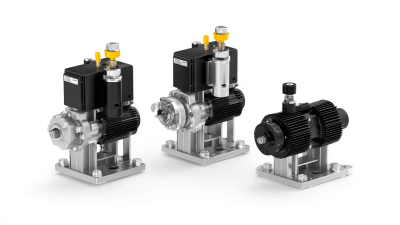How to Choose the Right Diesel Tank for Your Business Needs Based on Industry Standards
When it comes to selecting the right diesel tank for your business needs, understanding industry standards is crucial. According to a report by the American Petroleum Institute (API), the demand for diesel fuel in the United States is projected to exceed 4.1 million barrels per day by 2025, making the efficient storage and management of diesel fuel a priority for many businesses. Additionally, the National Fire Protection Association (NFPA) emphasizes that proper installation and maintenance of diesel tanks can mitigate risks associated with fuel spills and fires, underscoring the importance of adhering to safety regulations. With various types of diesel tanks available, including above-ground and underground options, it is essential for businesses to evaluate their specific requirements, including capacity, location, and compliance with local codes, to ensure they choose the most suitable diesel tank for their operational needs.

Understanding Diesel Tank Types and Their Applications
When it comes to selecting the appropriate diesel tank for your business,
understanding the various types and their applications is crucial. The diesel fuel industry plays a significant role in the US economy,
as it is the primary fuel for transporting goods via trucks and trains. As diesel remains a staple in various industries,
the design and specifications of diesel tanks should align with regulatory standards and operational needs.
According to recent market data, the global fuel and lube trucks market is projected to grow significantly,
reaching USD 1.86 billion by 2024 and maintaining a robust CAGR of 5.3% through 2030.
This growth is indicative of an increasing demand for reliable and efficient fuel storage solutions, emphasizing the need for businesses to invest in
high-quality diesel tanks designed specifically for their operational requirements.
Moreover, as industries continue to evolve, the choice of material and tank design emerges as a pivotal factor.
The recent comprehensive analysis of a 300L steel fuel tank for heavy off-road vehicles showcases how
numerical and experimental data can inform optimal tank design, ensuring safety and efficiency in fuel storage.
Stakeholders must stay informed about industry trends and advancements to make educated choices
in their diesel tank investments.
Assessing Storage Capacity Requirements for Your Business
When choosing the right diesel tank for your business, assessing your storage capacity requirements is crucial. The size of your tank should align with your operational needs, regulatory standards, and growth plans. According to the Petroleum Equipment Institute (PEI), the average diesel tank capacity for small to medium-sized businesses typically ranges from 500 to 10,000 gallons, depending on factors such as fleet size and fuel consumption rates. Understanding these variables allows businesses to maintain sufficient fuel supply without risking overcapacity or compliance issues.
Tip: Before purchasing, conduct a thorough analysis of your daily fuel usage and peak demand periods. This can help you calculate the optimal tank size, ensuring that you can meet your operational needs without incurring unnecessary costs.
Furthermore, consider the industry standards set by local regulatory bodies. For instance, the Environmental Protection Agency (EPA) emphasizes the importance of secondary containment for tanks over 1,100 gallons. Aligning tank size with regulations not only ensures compliance but also protects the environment and your business from potential fines.
Tip: Regularly review and update your fuel management strategies as your business grows. Staying informed about regulatory changes and industry best practices can further enhance your operational efficiency and sustainability efforts.

Navigating Industry Regulations and Compliance Standards
When selecting a diesel tank for your business, understanding industry regulations and compliance standards is crucial. Different sectors have specific requirements that govern the storage and use of diesel fuel. For instance, the Environmental Protection Agency (EPA) has established guidelines to prevent spills and ensure safe storage practices. Familiarizing yourself with these regulations can help safeguard your business against potential legal issues and hefty fines.
Moreover, it’s important to consider local compliance requirements, which can vary significantly by region. Some areas may enforce stricter regulations or mandate regular inspections of storage tanks. Businesses engaged in industries such as construction, transportation, or agriculture should be particularly vigilant, as they often face heightened scrutiny regarding fuel storage. By prioritizing compliance with these standards, you not only promote operational efficiency but also enhance safety and environmental responsibility in your operations.
Evaluating Safety Features and Environmental Considerations
When selecting a diesel tank for your business, it is crucial to prioritize safety features and environmental considerations, as these factors not only protect your assets but also comply with industry regulations. According to the National Fire Protection Association (NFPA), as of 2021, approximately 12% of all fires in industrial facilities were linked to flammable liquids, underscoring the importance of choosing tanks equipped with advanced safety mechanisms. Look for tanks that are double-walled, which significantly reduces the risk of leaks, and those that are fitted with spill containment bunds to prevent environmental contamination.
Moreover, businesses must adhere to Environmental Protection Agency (EPA) regulations concerning storage tanks. The EPA reports that improper management of diesel fuel can lead to soil and water contamination, posing serious health risks to communities. Integrating tanks that offer built-in monitoring systems, as corroborated by the American Petroleum Institute, can help detect leaks early and implement immediate corrective actions. Investing in tanks that meet or exceed these standards not only enhances safety but also demonstrates an organization's commitment to environmental stewardship, potentially benefiting them in regulatory inspections and public perception.
Choosing the Right Supplier for Your Diesel Tank Needs
When selecting a supplier for your diesel tank needs, it's critical to consider industry standards and best practices to ensure compliance and efficiency. One key aspect is the prevention of wet line contamination, which can occur when road fuel is mixed with rebated fuels like red diesel or kerosene. Suppliers should provide clear guidelines on maintaining fuel integrity and offer solutions to prevent cross-contamination. According to industry reports, implementing rigorous fuel handling practices can reduce the likelihood of such contamination, ensuring that your operations run smoothly and legally.
Moreover, the choice of supplier can directly influence your equipment's performance, especially during colder months. Proper fuel blending and the use of winter diesel can significantly mitigate issues related to fuel gelling, a common problem when temperatures drop. Expert advice recommends using seasonally blended fuels to maintain optimal functionality of diesel engines even in harsh weather conditions. Engaging with a supplier that understands these nuances and offers tailored products will help you navigate the complexities of diesel fuel management effectively.

Related Posts
-

Ultimate Guide to Sourcing High Quality Diesel Tanks for Your Business Needs
-

How to Choose the Right Air Operated Diaphragm Pump for Your Applications
-

Unlocking Efficiency: The Advantages of Advanced Fuel Storage Tanks for Your Business
-

Mastering Dosing Pumps: A Step-by-Step Guide to Optimal Use and Maintenance
-

7 Reasons to Choose a Diesel Transfer Tank with Pump for Your Business
-

How to Select the Right Diaphragm Pump for Your Industrial Needs